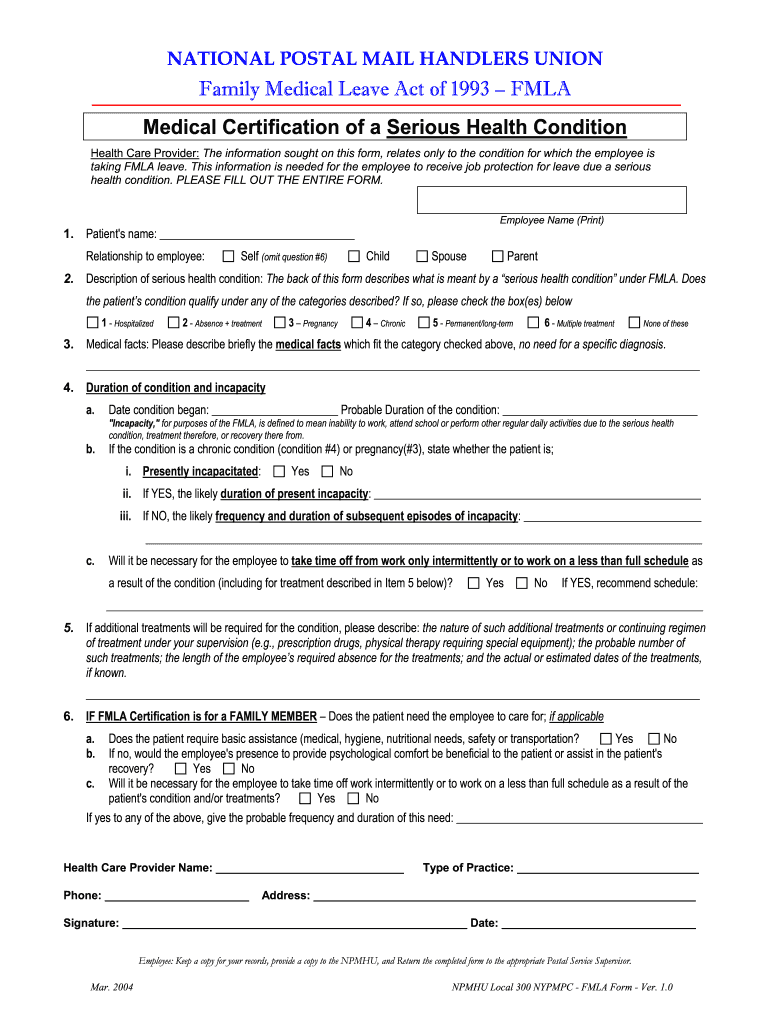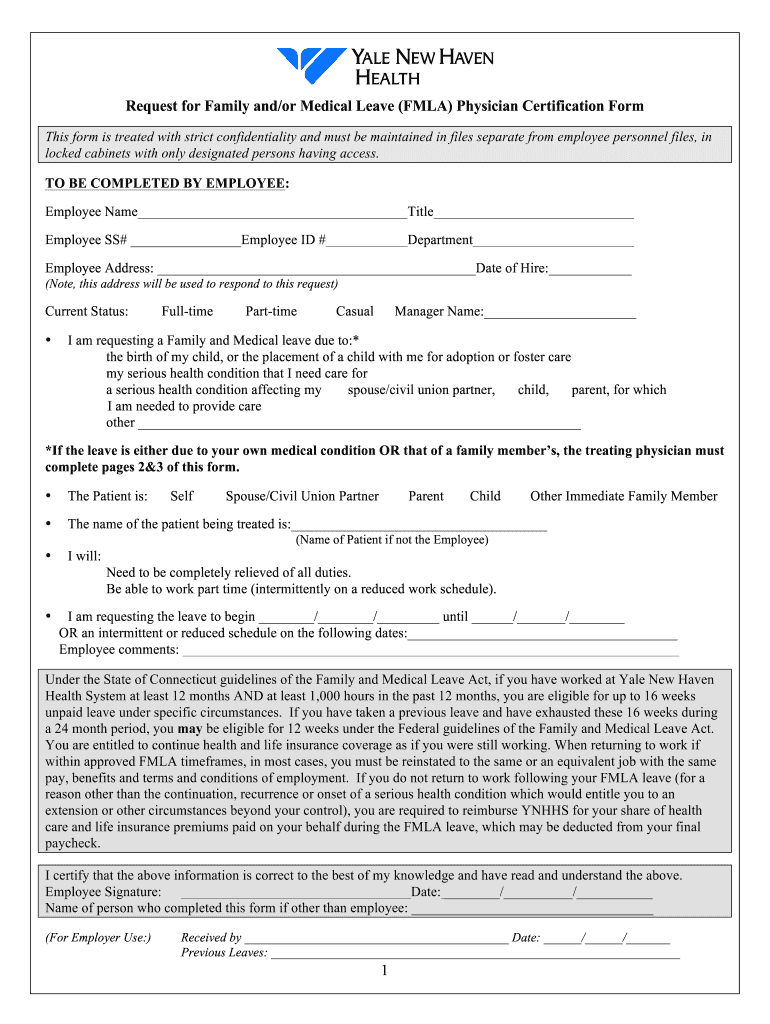Hospice and FMLA Paperwork: What You Need to Know

Family and Medical Leave Act (FMLA) provides job protection for employees who need to take time off work to care for a family member or for their own serious health condition. Understanding how FMLA intersects with hospice care is crucial for those who find themselves in such situations. This post will guide you through the essentials of FMLA paperwork related to hospice care, ensuring you can support your loved ones without jeopardizing your employment.
What is FMLA?

FMLA, enacted in 1993, allows eligible employees to take up to 12 weeks of unpaid, job-protected leave in a 12-month period for:
- The birth and care of the employee’s newborn child
- The placement of a child for adoption or foster care
- To care for an immediate family member (spouse, child, or parent) with a serious health condition
- When the employee is unable to work because of a serious health condition
Employees can also take intermittent leave for chronic or serious conditions. Understanding FMLA eligibility, requirements, and paperwork can help you navigate this process smoothly.
Eligibility for FMLA

To be eligible for FMLA, an employee must meet the following criteria:
- Work for a covered employer - private businesses with 50 or more employees within 75 miles or all government agencies
- Have worked for the employer for at least 12 months
- Have worked at least 1,250 hours during the 12 months prior to the start of the leave
FMLA and Hospice Care

Hospice care focuses on providing comfort and palliative care for terminally ill patients, often within their own home. When a family member is under hospice care, the employee might need to:
- Provide direct care or support
- Make frequent visits or attend to administrative tasks
- Spend time with the loved one in their final days
Here, FMLA comes into play to protect the employee’s job while they attend to these critical responsibilities.
The FMLA Paperwork Process

Here’s a step-by-step guide on how to initiate and complete FMLA paperwork when dealing with hospice care:
- Notify your employer: Inform your employer about your need for leave due to a family member’s hospice situation as soon as possible. This is best done in writing.
- Submit FMLA Request Form: Fill out and submit the FMLA leave request form to your HR department. This form can be obtained from HR or online. Ensure you detail the reason for leave as caring for a family member with a serious health condition.
- Medical Certification: Obtain medical certification from the hospice physician. This document should:
- Confirm the family member’s condition
- Describe the care needed
- Estimate the duration of care
- Follow up: After submission, follow up with HR to ensure your paperwork is being processed. HR will then:
- Verify the information provided
- Determine the leave duration
- Designate the leave under FMLA
- Approval and Designation: If approved, your leave will be designated under FMLA, ensuring job protection. Your employer will provide you with a written confirmation.
🔍 Note: Always keep copies of all documents and correspondences for your records. It’s vital for reference in case of disputes or clarifications.
Key Considerations

When handling FMLA paperwork for hospice care, keep these points in mind:
- Confidentiality: HR staff must treat FMLA-related information with the utmost confidentiality.
- Intermittent Leave: You might not need all 12 weeks consecutively; FMLA allows for intermittent leave, especially useful in hospice scenarios.
- Benefits: While on FMLA, employers must maintain group health insurance benefits as if you were not on leave.
- Unpaid Leave: FMLA leave is generally unpaid, though employers might offer or employees might use accrued paid leave simultaneously.
Once you have navigated through the FMLA process for your loved one's hospice care, you'll be well-equipped to balance your professional and personal responsibilities. Remember that while FMLA provides job protection, it does require proper documentation and adherence to your employer's policies. Ensuring you provide all necessary paperwork and maintain open communication with HR will help you secure the time you need without concerns about job stability. Supporting your loved one in their time of need while maintaining your employment security is a delicate balance, but with the right approach and understanding, it's entirely achievable.
Can I take FMLA leave for my terminally ill sibling?

+
Under FMLA, the definition of “family” is limited to spouse, child, or parent. Unfortunately, siblings are not covered, but some companies might have their own leave policies that extend to siblings.
Does FMLA cover bereavement leave?

+
While FMLA doesn’t cover bereavement leave directly, if an employee needs time to care for a family member in hospice before their passing, this can be covered under FMLA. Post-death, standard company bereavement policies would apply.
What if my employer denies my FMLA request?

+
If you believe your employer wrongfully denied your FMLA request, you have the right to file a complaint with the Department of Labor’s Wage and Hour Division or seek legal advice.
How do I ensure my leave is approved?

+
Ensure all documentation is complete and correctly filled out, provide clear communication with your employer, and if possible, discuss the situation with your HR representative before submitting your paperwork.
Can I use FMLA leave intermittently to care for someone in hospice?

+
Yes, you can use FMLA leave intermittently to provide care or support for a family member in hospice care, as long as your employer has certified the need for such care.



